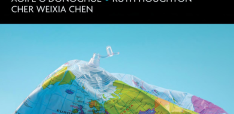Unusual suspects discussing the EU’s role in the world
Why should local and regional representatives and officials from across the EU discuss the crisis-ridden bloc’s external relations, you might ask. ‘Because it matters’ would be too much of an easy answer. A recent gathering of local and regional representatives tried to dig deeper and find reasons why a global European role would matter to them. What became clear once more is one thing: Europe’s attraction – and thus projection – abroad begins at home.
Four years into a comprehensive crisis and ahead of a European election next May, and with international crises in abundance from Syria to the South China Sea, from a potential democratic rollback in the Arab World to setbacks in climate policy, there is ample reason to discuss the EU’s role in the world. When this happens in Brussels or one of the capitals of the now 28 member states, policymakers and think tankers very soon agree on what the Union needs: leadership and unity, a vision and a strategy, plus the necessary resources (seems like only the institutions are in place). As a report by eleven EU Foreign Ministers put it about a year ago, “in the global competition with other economies, ideas and models of society, the countries of Europe will uphold their values and pursue their interests successfully only if we stand united”.
Yet things can look remarkably different if a group consisting largely of mayors and city officials, deputies from regional assemblies and representatives from civil society come together to discuss how they see the EU’s role in the world. The annual EU Integration Forum, held in Prague this year, provided the platform for this unusual exchange.
Maybe unsurprisingly, the Forum’s participants prized diversity over unity, despite the EU’s motto being "Unity in diversity“. Rather than trying to emulate an elusive state-like unity of global powers such as the United States or China, the EU should accept that it could not always speak with one voice. Indeed it should see its diversity, including the different historical and cultural relations of its member states with third countries, as strength. Simultaneously, one of the greatest assets of the EU is its function as a role model for regional integration. It was precisely for this achievement of bringing lasting peace through integration to a previously war-torn continent that won it last year’s Noble Peace Prize (the American contribution to this did not go unmentioned in the acceptance speeches).
Diversity exists not only among member states, but even more so between the EU’s official and unofficial networks of around 150,000 regions and municipalities. Unknown probably to the majority of European citizens, a large number of regions sport their own official representations in countries outside of Europe: From Catalonia to Bavaria to Scotland, Europe’s local and regional authorities have set up their ‚embassies’ in the political and economic capitals of the world, such as in New York, Bangalore, and Shanghai. If the EU were to involve those additional outlets in its broader external relations, it could give its network of external relations an additional boost. Likewise, many local representatives wanted to strengthen city-to-city networks, asking for more (knowledge) exchanges at this level globally.
Ultimately, however, those who work closer to the citizens than national or European politicians felt that the best guarantee for a sustained global role would be for the EU to get its house in order. Not only depends the EU’s external image very much on its internal image – if European citizens’ approval ratings of the EU hit new ever new lows, how could people in the Middle East and Africa, in Asia and the Americas be expected to see it in a more benign light?
It is not only the EU’s real (economic and therefore also political) power that has suffered from the continuing economic and financial crisis, but also its ‚magnetic attraction.’ While the latter is simply key when it comes to helping transform Europe’s neighbourhood in Eastern Europe as much as in the Southern Mediterranean – with the decision about Ukraine’s prospects of eventual membership at a summit later this month being a litmus test of the EU’s power of attraction – it also matters in its relations with countries and regions farther away.
Europe still appears to be a good brand name. Yet like a company facing global competition from old and newly rising powers such as China and India, Brazil and South Africa, the Union cannot live of past reputation alone. It has to reinvent itself around its core values – democracy and the rule of law, economic and social liberties and human rights – so that people at home value (or at the very least, don’t mind) the EU’s activities in a world that, seen from one’s town or village, looks so much different and so remote, yet whose turbulences as much as growing prosperity affects every European citizen’s life.
Photo - EUIF/Robert Bosch Stiftung/IFOK GmbH


